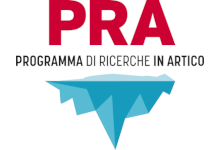Objectives
BETHA-NyÅ aims to investigate how the Arctic Boundary Layer can influence aerosol properties. A detailed knowledge of the atmospheric processes at different scales can help to define the main causes of Arctic Amplification.
Following the SESS recommendations, BETHA-NyÅ will harmonize aerosol measurements at two stations located at different altitudes: Gruvebadet (GVB) atmospheric observatory and Zeppelin (ZEP) station. GVB of ISP-CNR (61 m above sea level) is an atmospheric laboratory dedicated to the chemical and physical monitoring of atmospheric aerosol begun in 2010 and is still ongoing; ZEP (474 m above sea level) is managed by the Norwegian Polar Institute and, compared to stations closer to sea level, is less affected by local anthropogenic aerosol and pollution sources. The differences in concentration levels and seasonal/interannual trends observed at the two sites can help to better understand the impact of local- and long range sources.
BETHA-NyÅ
 Title: Boundary layer Evolution Through Harmonization of Aerosol measurements at Ny-Ålesund research stations
Title: Boundary layer Evolution Through Harmonization of Aerosol measurements at Ny-Ålesund research stations
Acronym: BETHA-NyÅ
Principal Investigator ISP: Elena Barbaro
Leading Institution: Institute of Polar Sciences (CNR-ISP)
Funding: Programma di Ricerche in Artico (PRA)
Period of activity: 2021 - 2022
 Ministero dell'Universita e Ricerca
Ministero dell'Universita e Ricerca
Programma Ricerche Artico
Programma Nazionale di Ricerca in Antartide
 Ministero degli Affari Esteri e della Cooperazione Internazionale
Ministero degli Affari Esteri e della Cooperazione Internazionale
L'Italia e l’Artico
L’Italia e l’Antartide
CNR-ISP
Consiglio Nazionale delle Ricerche
Istituto di Scienze Polari
c/o Campus Scientifico - Università Ca' Foscari Venezia - Via Torino, 155 - 30172 VENEZIA MESTRE (VE)
Salvo diversa indicazione, il contenuto di questo sito è concesso in licenza : Attribuzione - Non commerciale - Condividi allo stesso modo 4.0 Internazionale (CC BY-NC-SA 4.0) 
Privacy policy e Cookie policy - Amministrazione trasparente CNR








